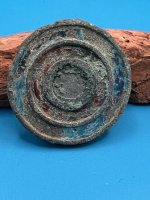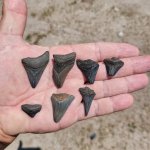S
srdraftcad
Guest
Is this a "HOT ROCK"
Hi Fellows
Using a Garrett-GTI2500 I detected this rock that sound very good in "All metal mode" but nothing in Discrimi. Mode. Is a black stone.
What is?
Hi Fellows
Using a Garrett-GTI2500 I detected this rock that sound very good in "All metal mode" but nothing in Discrimi. Mode. Is a black stone.
What is?
Upvote
0





